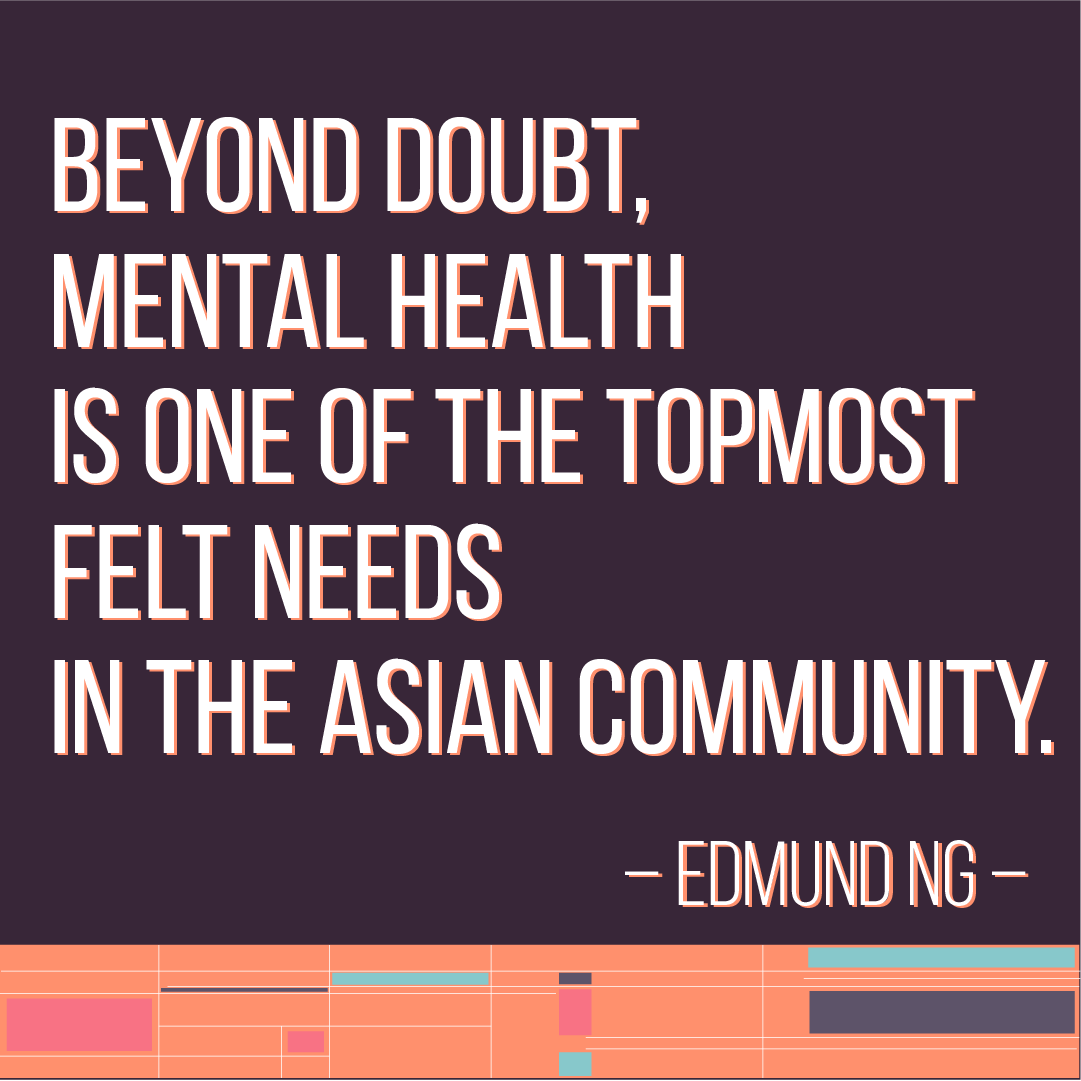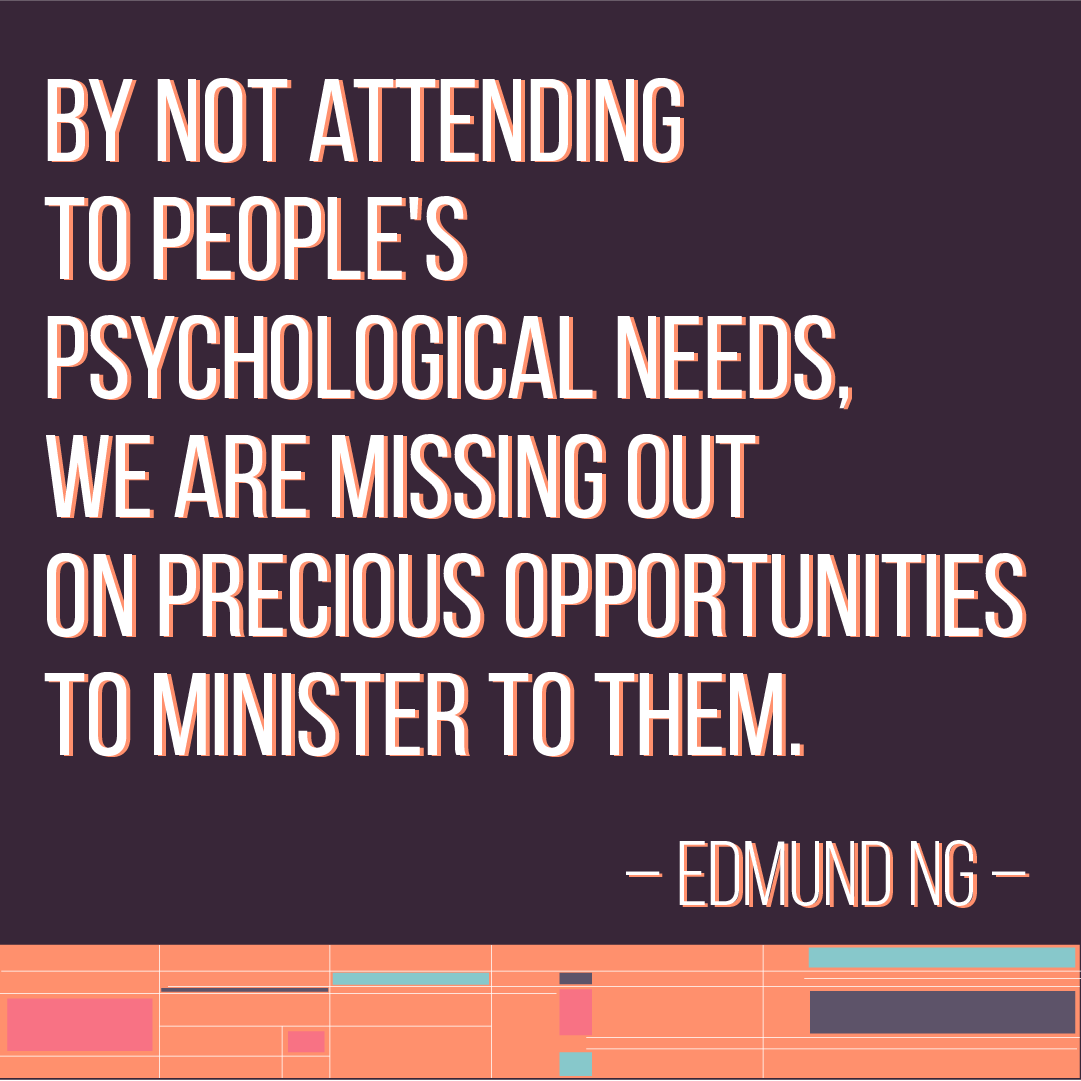A 2021 mental health meta-analysis of 35 studies in South Asia during the Covid-19 pandemic shows a high prevalence of 34 percent for depression and 41 percent for anxiety. If South Asia is taken as representative of Asia, more than 1.5 billion people out of the total Asian population of 4.7 billion are currently struggling with depression or anxiety. Beyond doubt, mental health is one of the topmost felt needs in the Asian community.

Apart from depression and anxiety, studies have not included other mental health problems. Post-pandemic repercussions, impending economic hardships, famines, natural disasters, and geopolitical or civil disorders will surely bring about an onslaught of more mental health problems in Asia, including a higher rate of suicides.
As a case in point, a report by the World Health Organization shows that South East Asia alone contributes to 39 percent of the annual number of suicides globally. Meanwhile, the 2020 WHO Mental Health Atlas states that the number of mental health workers per 100,000 people in South East Asia is only 2.8, compared with the global median of 13.0 (p. 61). In fact, only a meager USD 0.10 of government expenditure in these countries was spent on mental health per capita in 2020, compared with the global median of USD 7.49 (p. 52).
This mismatch means that the mental health needs in Asia are immense. Will the Asian church be missing out on this big window of opportunity to minister to the needs of others? Will we be missing out on bringing the good news to the lost in Asia through this huge avenue of entry?
GLOBAL CLASSROOM
Mental Health and Trauma
People living with mental health needs comprise one of the largest mission fields for the church worldwide.

What the Wonderful Counselor Is Teaching Us
As the ‘wonderful counselor’ (Isa 9:6), Jesus recognizes that besides our spiritual and physical needs, we also have psychological needs. We are made up of spirit, body, and soul. Indeed, the Greek word for soul is psyche, from which we get the word psychology. Psychology is the science of how our human nature thinks, feels, and behaves.
When Jesus proclaimed the kingdom of God, he often went around the community to minister to the people’s felt needs. He not only healed the sick and delivered others from demonic oppression, but many times, he also counseled them when they were struggling with psychological issues.
In Christian terminology, counseling is a therapeutic relationship between two or more persons in which one person seeks to help another person or persons cope with their emotional and mental struggles, live better, and grow in the faith through listening and dialoguing with them.
For example, Jesus counsels a Samaritan woman in her shame as she comes out to draw water from a well in the hottest part of the day when no one else is there (John 4:4-42). She was trying to avoid the villagers as she was living an immoral life, cohabiting with someone not her husband and having had five previous husbands.
Jesus does not pray for her to be healed of her shame, nor does he cast out the demon of shame from her. This is contrary to what I have seen several times in churches where leaders prayed to cast out the demon of depression from people who are depressed. No, instead, Jesus counsels the Samaritan woman.
Likewise, Jesus did not pray for healing or cast out the demon of grief from the two disciples with downcast faces on the road to Emmaus (Luke 24:13-35). Instead, he counseled them in their grief as he journeyed alongside them.
Neither did Jesus pray for healing or cast out the demon of rejection from Peter, who had earlier betrayed him. Over a meal to reinstate their close relationship, Jesus counseled Peter and assigned him to take care of the church to signify his restoration (John 21:15-17).
Thus, whether we are taking care of his sheep as the body of Christ to one another or proclaiming the gospel to the lost in the community, we ought to be relevant in meeting the spiritual, physical, and psychological needs of others. Indeed, Jesus teaches us from the above encounters that we must attend to people’s psychological struggles in addition to their spiritual and physical ones.
To do this effectively, the body of Christ needs to learn some basic mental health knowledge and skills. If we equip ourselves with basic mental health literacy, we will know more about our human nature in how people think, feel, and behave. This way, we will respond to people’s emotional and mental struggles more effectively.![]()
The Asian Church’s Attitude toward Mental Health
Presently, there is no study carried out to determine the level of mental health literacy in the Asian church, but the following snippets will give us a glimpse of the low level of mental health awareness amongst Christians in Asia.
On a personal note, my first wife died suddenly of a brain aneurysm in 2005 and I was deeply devastated. A week following her death, my church pastors visited me, and in my time of grief when I could not distinguish between day and night, all they talked about during the visit was the problems at church.
Through my personal struggles, I discovered firsthand the glaring incompetency in many of our churches in caring for and supporting others in their emotional and mental difficulties. This is because many Christians are not equipped with basic mental health literacy.
More recently, I attended the Lausanne Asia 2022 Congress in Thailand where more than 600 Christian leaders at the forefront of ministry and missions were invited to rethink and discuss God’s agenda for the Asian church today. To my disappointment, not a single session was scheduled to talk about engaging the immense mental health needs in Asia.
When I was in Thailand, I also heard the sad story of a youth leader in a local church there. At age 24, she went through a major episode of depression. She sought help from her church leaders but all they did was pray for her. She was so disappointed at their inadequacy to help her more effectively that she left her church to seek help elsewhere.
The above illustrations underscore the urgency of why it is so important for the body of Christ to have some knowledge of effective Christian counseling skills in the Asian context.
For various reasons beyond the scope of this article, many churches still consider mental health as outside the domain of their ministry. As a common practice, and sometimes due to the amount of other responsibilities they have, many church leaders refer mental health problems to an outside professional.
The problem is that we cannot be sure what our referees will be getting from outside. Professional counselors can be practicing merely psychological counseling with humanistic values and goals even if they are Christians. Indeed, the goal of secular counseling that is based only on psychology is basically to gain human wellness, whereas the ultimate objective of counseling based on an interface between theology and psychology (whether it is called Christian, pastoral, or biblical counseling) is to help the counselee to know God, relate closely with him, and be Christlike in our character.
By not attending to people’s psychological needs, we are missing out on precious opportunities to minister to them.

Equipping the Body of Christ in Mental Health Literacy
Admittedly, pastors and church leaders cannot address all the psychological needs of a congregation on their own. In fact, it takes the whole body, including lay leaders and friends, elderly and young, women and men. It takes churches helping other churches, and outside organizations coming alongside churches in partnership.

Towards this end, the following are five ways that church leaders can help the body of Christ to be more open in embracing mental health literacy as part of their ministry skills:
- There is so much pain and suffering around us. At the same time, the world’s competitive environment is making many people very self-centered. To stand out as different, Christian leaders should focus on nurturing a caring culture in our churches by word and deed. As our God is compassionate to the needs of others, the body of Christ must consistently extend pastoral care to people who are in need and hurting, not only to our church members but also to our communities and nations.
- Churches can schedule an annual mental health awareness week where a biblical message on this topic is preached from the pulpit, and members are motivated to sign up for at least one class on mental health.
- Churches can offer regular short courses on mental health as part of the Christian education curriculum or community outreach training. Outside Christian professionals can be invited to conduct such courses.
- Larger churches can set up a Christian counseling department to offer one-on-one counseling and support groups (for grief, alcohol/gambling/pornography addictions, parenting, and so on) for their members, for those from smaller churches, and for members of the public.
- Lastly, our leaders can encourage the body of Christ to equip themselves with mental health literacy through learning online from various Christian mental health teaching websites, especially those that interface with theology and psychology. There will always be some church members willing to learn more about mental health on their own. As a starting point, I recommend this video as a helpful resource for learning the basics.
Equipping ourselves with mental health knowledge and skills will enable us to take better care of ourselves and we will also be able to minister to others more effectively. Helping people with their emotional and mental struggles is also an effective way to enter into the lives of the people in the community and bring them into the fold. It is time for the church to bridge the great need for mental health literacy, especially in Asia.



